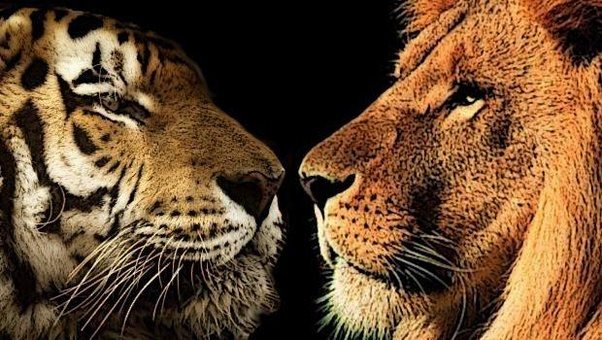Green - Lions Killed To Make Phony Tiger Products
African Lions are under new pressure from poaching and unscrupulous breeders because their body parts are being passed off as from rare and endangered Tigers.
The new report (.pdf link) from the UK-based Environment Investigation Agency (EIA) says China's ban on Tiger products has led to some traffickers and legal traders to substitute Lion parts in traditional medicine. Despite the ban, there's still a high demand for such items in China and southeast Asian markets.

"In April this year, Chinese police arrested a trader in Nanjing, eastern China, who had purchased what he believed was tiger bone which upon DNA testing was found to be lion bone," the report states. "In May 2016, a suspect was arrested in Vietnam with 680 tiger claws brought into the country from Laos; however, after DNA testing it was later concluded the claws were sourced from lions and not tigers."
The Convention on International Trade in Endangered Species treaty (CITES) limits the amount of trade on body parts of lions bred in captivity, and South Africa is the main producer of Lion parts. Conservation groups are alarmed because Pretoria last month announced an export quota of 800 skeletons.
African Lions are considered a threatened species, with some sub-species at greater risk than others. Overall, their population has fallen by 43 percent in Africa between 1993 and 2014. South Africa has an active breeding program, so their numbers are up in that country. But..
"The other African countries that do not have captive breeding facilities like those in South Africa are concerned that allowing trade on such lion products might adversely affect their wild populations," said Sabri Zain, director of policy with Traffic, an organisation that investigates illegal wildlife trade.
"And what is worrying is that there is no information on the situation of wild lions in the rest of Africa," added Mr Zain.








 Create PDF
Create PDF Print
Print Email to friend
Email to friend